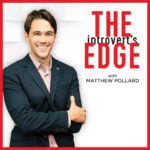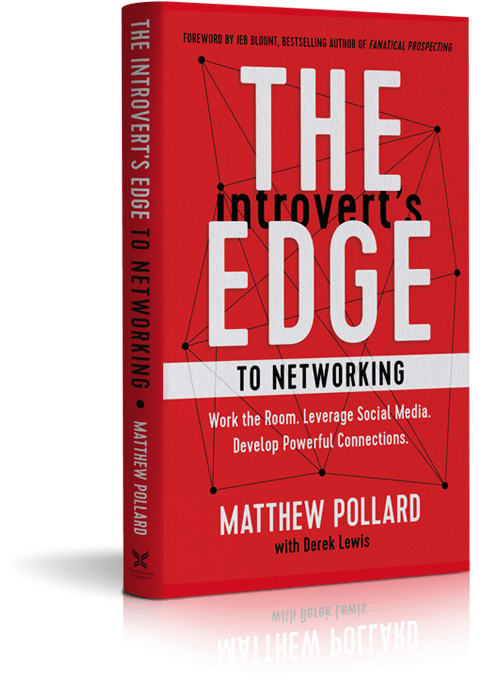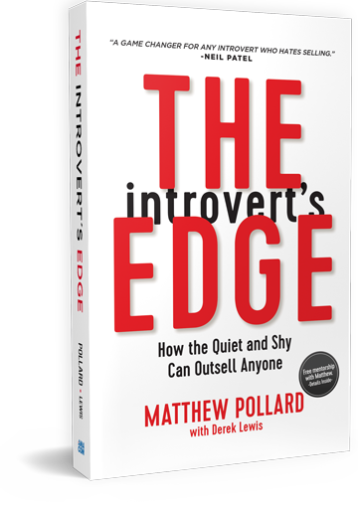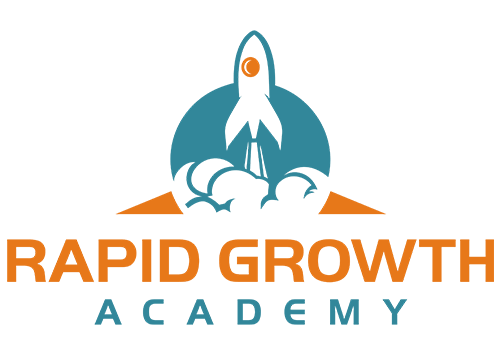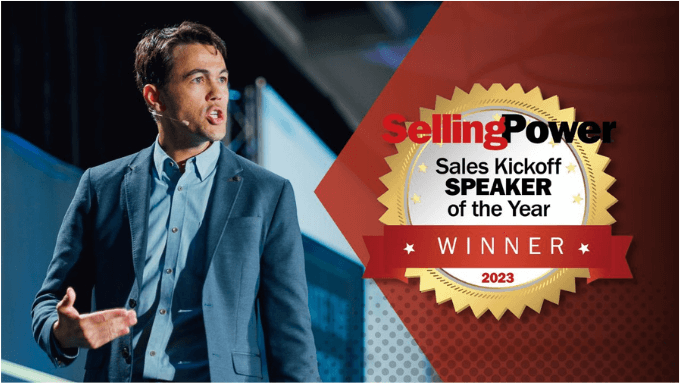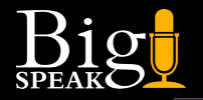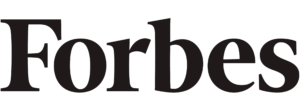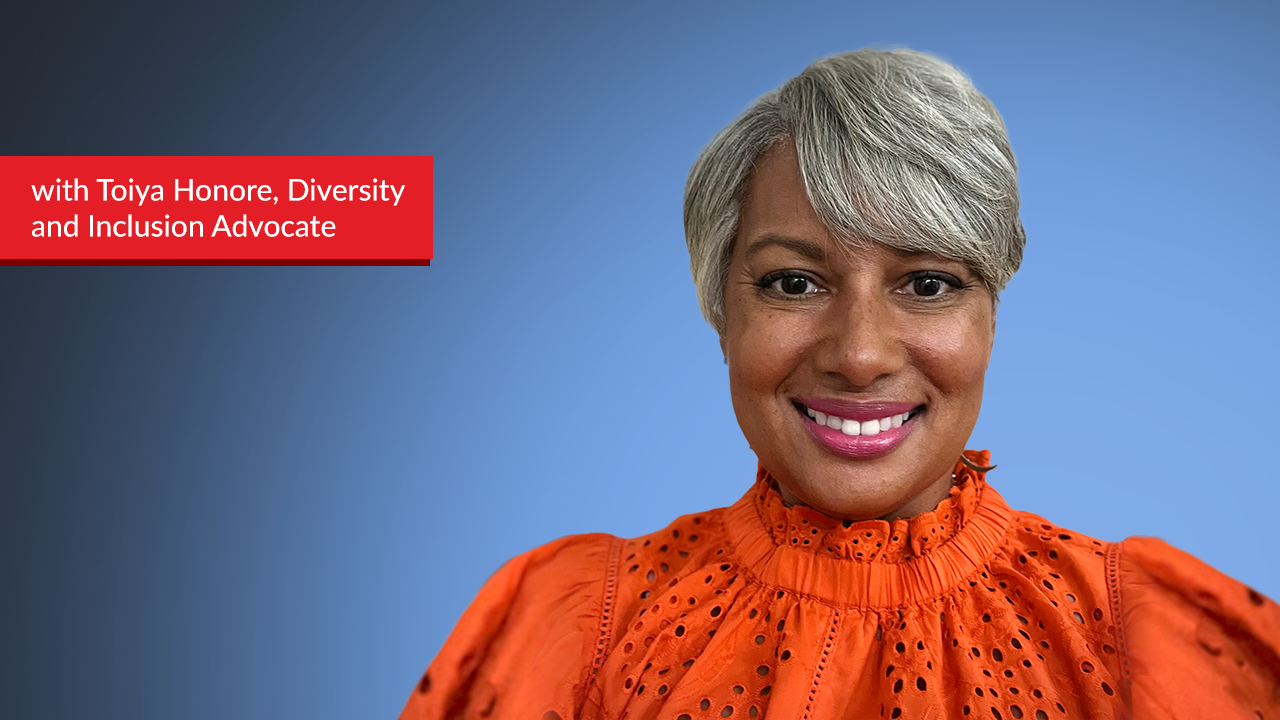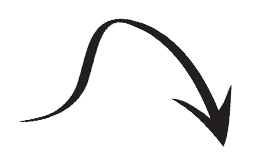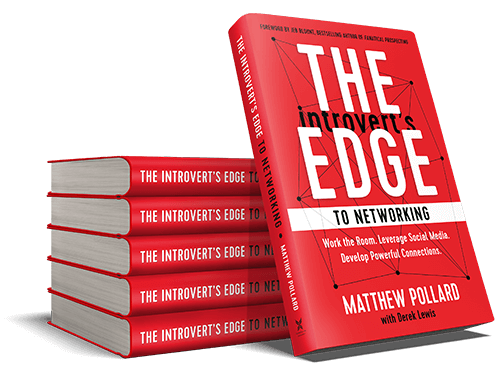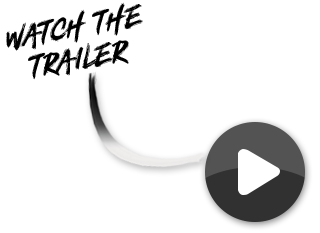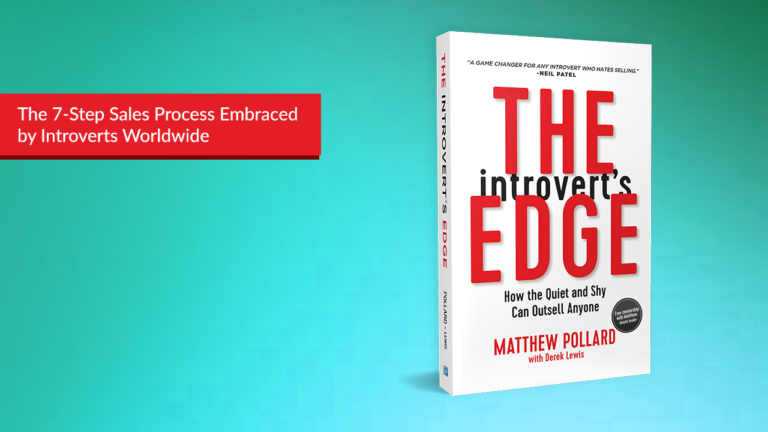Matthew Pollard: Hello, everyone, and welcome to the Introvert’s Edge podcast. I have to admit I’m I’m ecstatic about inviting my next guest and mainly because she has done some things that I have been telling organizations to do now for years. And everybody thinks that this is something that they won’t be able to get by in their organization for. And my next guest has actually done this.
She’s actually created an employee resource group for introverts as a corporation, or I should say, for her in her case, an association, because she works for the American Heart Association that has actually agreed that having a support group for introverts would be helpful to the mission of the organization and the communication and dynamic of the team culture there. And I’m just I’m so ecstatic to see this happen.
And I want to go into debt with her on how she was able to do this and how it has worked. But it’s also important you know, that she’s been working with this association now for nearly 20. Well, I turn over 20 years as well as one a whole bunch of marketing awards and diversity inclusion awards as well.
So it’s so vitally important to have people like this on my podcast, which is why I’m so excited to welcome Toiya Honore. Toiya, welcome to the show. Ecstatic to have you.
Toiya Honore: Thank you, Matthew. I’m so happy to be here.
Supporting Introverted Employees
Matthew Pollard: Well, I’m ecstatic to dive into this topic because you’ve done something that I have been advocating for for a long, long period of time. And we spent a long time talking before this. And I originally found it a little bit hard to get this idea as something that people would buy into. And then you got people through that.
And so I’m really interested to dive deep into this, but I want to take a step back before we even get to that, because obviously you’ve had a very successful career in the EDO in the Heart Association yourself. And obviously there was a time probably that you realized you were an introvert and then before you became this titan in your own industry, yet to really find your own way to success.
And I just love to understand a little bit more about your personal journey and how introversion really impacted your life.
Toiya Honore: So my entire life, people have always talked about how quiet I am, but I’ve always been successful doing my work, and early in my career it was hard for me to be in meetings and to get a word in edgewise with all of the extroverts talking. And I would sit there and wait for that little pause to say something.
And by the time that would happen, someone would have said what I was thinking to say. And so then I wouldn’t say anything at all. So you can imagine I could go meeting at the meeting without really saying anything. And that became a problem. So even though I was getting the work done and I was excelling, my supervisors were saying that I was too quiet, I was too quiet in meetings, and I’m in marketing and communications.
And so you can imagine I was probably one or two people in a department who were introverted and everybody else was extroverted, which made it even more difficult to survive in that environment. And I was working overtime trying to figure out how to get my voice heard. And so I read all these books. I mean, everything from, you know, where do you sit in the room if you’re sitting next to the person who leads the meeting, you get the halo effect that you’re talking more to, and you know how your body language in the meeting, all of that, just trying to figure out how do I appear that I’m talking more, even if I’m not.
And so eventually I just it was wearing me down and I had gotten really, really drained. And I remember specifically I remember this specific day I was in my performance review and I had excellent across the board, but my supervisor wanted me to be a different way. She wanted my personality to be something that I just wasn’t.
And I was trying so hard to be this personality that I just wasn’t. And I just decided, you know, maybe this isn’t the place for me. Maybe I need to be somewhere else. And I had been there like ten years at this point. And so she was like, No, no, it’s fine. It’s fine. You’ll be okay. But I was so drained and I told her, you know, I can continue to try to be what you want me to be, but it’s really wearing me out.
And if this organization is just really if they are serious about diversity, then introversion needs to be considered because the introverted staff is just being worn out, especially in communications.
It’s Not Just About Open Plan Offices
Matthew Pollard: You know, I think it’s such an important thing to say. I mean, you’re now, you know, a VP is modeling in communication. So a virtual listening. This story has a really happy ending. Not only that, you know, I one of the things I love about your stories, you’re now supporting other people. You didn’t get to success and then say, you know what, I’m now going to call myself an extrovert, which is a lot of what I see introverts do.
And it’s not because they’re doing it on purpose. It’s that they feel like their aspiration is to become an extrovert, which I find leaves people exhausted and drained at the end of the day, as opposed to leaning in to their introverted strengths. But I really think that when people hear about the concept of marketing, they’re imagining now being in that room of like the TV show Mad Men and all of that really strong personality and hey, we’ve got this quiet person that has things to contribute, but they’re just not the loudest voice in the room.
And I can understand the support that you wished you probably had. You’re now providing to other people. But I understand also how tough a sell that can be to an organization, especially, I’m assuming, an association that lives off funders and donors and does important work. Because every time you decide to do something like this, it’s taking resources away from other things.
And I love the fact that you decided to really go into it’s a diversity topic because I absolutely believe that it is and it should be part of that discussion. I guess what I’d love to understand is what initial conversation did you have? What pushback did you get and how did you get that breakthrough of, okay, we’re willing to entertain this?
Toiya Honore: Initially, I think they were looking at it from the standpoint of we’re just helping the introverts and not necessarily looking at it from a standpoint of how introverts and extroverts could be working better together if they understood one another and understood the personalities and if leadership understood the personalities of introverts versus extroverts and what made them tick and what they needed to do their best work.
So that was really one of the main reasons that I think they allowed me to do this. Also, you know, we pride ourselves on being an organization that thinks that diversity, equity and inclusion is very important and we have all different types of employee resource groups and I wanted them to see that personality type is as much a diversity issue as anything else that we focus on.
And so they gave me the chance and I’m very, you know, thankful for that because I really did not want to leave the organization. I love this organization. As you can see, I’ve been here over 20 years and I felt like I needed to try to make a difference in my environment where it was going to help other people to understand the personality type and how it can support the mission.
Introverts = Valuable Asset
Matthew Pollard: Absolutely. And I think it is so important to have that dialog as we’re trying to get the best out of our people. And the truth is that and I see this happen with big tech companies right through to small association groups where the extroverts and the introverts are on the same team. But there’s so much conflict or there’s so much unsaid that leads to degradation of productivity.
People feeling isolated and left out. And that affects presenteeism. And all of this costs an organization money and they don’t realize it because that’s just the way it’s always been. What things have you noticed since you’ve brought this conversation to the forefront that has improved the organization in general?
This has been going on for years now, and no one would do that if there wasn’t buy-in, but also if there wasn’t a high-level outcome that the organization was seeing.
Toiya Honore: Yes. So we focus on the group. We really focus on the benefits that are the superpower hours, if you will, that introverts bring to the organization. We don’t focus so much on things that we need to change or, you know, strive to be. We do that in our private little setting because obviously we all need growth. But when we are doing things that has the entire organization as an audience, we talk about the superpowers that H-hey, I mean, that the, the, the lines that of our brains, the introverts and, and one of the things that we did, we talked with HR.
Because we wanted to make sure that when job descriptions are being shared externally or they’re recruiting people, that there was not a bias around the introverts. I am an introvert, and sometimes when I’m interviewing people, I can easily tell that they’re introverted or extroverted and so I have to think about the skill set they’re bringing, how excited they probably feel on the inside, because as an introvert, our faces don’t always show that we’re really excited.
And if we didn’t bring that to the attention of the other leaders in the organization or HR, we may have missed a lot of great candidates just because they didn’t feel that they were interested in the role because their faces didn’t show it.
Matthew Pollard: You know, that’s such an important in such an important point because I can tell you, I used my interviews. You always lost like 45 minutes to an hour and everybody else’s interviews. I found like 20, 30 minutes. I got a good sense of who they are or they’ll do group interviews.
And I always felt my best staff members, a lot of the time I didn’t feel like I had a connection with them in the first 30 minutes or I felt like they weren’t entering the standard questions the way that they would need to to get the job. But I would explore the résumé. I would ask more questions, I’d be creative, and then I would find there was like this diamond in the rough answer that I wasn’t expecting.
And I was like, Wow, this person, they don’t. This isn’t the job for them. Well, let’s create a role for them because this person can provide a huge amount of value to those people that perhaps evaluate people in group settings or do like submit your video quickly on the fly. Let’s keep you just keep a solid recording that are judging people.
Let’s face it, judging the book by the cover. What recommendations would you provide to them to think differently about what they’re doing? What things have you employed as an organization to do it differently?
Toiya Honore: Well, one thing we do have the video or we had the video where the person would initially give an intro of themselves through the video. They may not necessarily have known what the questions were in advance, but we made sure that they could stop it and rerecord as many times as they wanted because at first I think it was just however it is, is how it is and it just goes.
But as an introvert, you need to put some thought into the answer. You probably are aware of how you look, and so you have to pick up your energy and smile and do all these things that maybe an extrovert does not. And so when we spoke with HR, we went to make sure that that process was going to be fair and not create a bias for introverts who are interviewing, even introverted leaders.
And then we also talked to leadership about when an introvert is interviewing how they may not appear to be as excited about the role. But listen for words that they say. If they say they’re excited about the role, regardless of how they look on their face, they’re probably excited about the role. Take that. And so I have been so excited when people because I do a lot of interviewing and when people that I’m interviewing with, when the executive comes back and says to me, I could tell that they were introverted and I took that into consideration.
And I think this is going to be a great hire that makes me so excited because I know that introverts are making a difference within the organization.
The Power of Introverts in the Workplace
Matthew Pollard: That’s perfect. I really believe that what you’re saying can transform the quality of the staff that people have inside their organization or association, because they’re actually it’s forcing them. And I mean, it’s not really just about introversion, is it? You’re forcing your interviewers to give people the benefit of the doubt, to give them an opportunity to show their best selves.
So while, of course, it’s titled introversion, it’s really much more. It’s a much broader requirement to give people the opportunity to present themselves in a manner that they are comfortable with. And I know for myself, you know, I recorded a whole bunch of videos yesterday for a new summit that we’re launching called The Introverted Seller Summit.
And the first video. It was horrible and I’m passionate about it. I love the fact that we’re launching this and providing so many great speakers to help introverted sellers realize that they can sell more. Business owners realize that they can sell. Yet I still couldn’t figure out how to express that on the first take. Now a lot of people will see the final product like, Wow, it’s easy to hear.
It’s not for me, it wasn’t. It was like 16 takes before I got it right. But that now it’s right. It’s like forever. And I think that a lot of people, when they’re judging introverted individuals on an interview, they’re putting them under test conditions. But life’s not really like that, is it? Like if you’re sending an email, you can edit it if you’re, you know, going into a meeting, you can plan and prepare and think through the questions that might come up and get ready for it.
What results have you seen from those hires coming into the organization as a result of the fact that they probably wouldn’t have been given the opportunity otherwise? Are they? If some of those people become really strong players within the organization?
Toiya Honore: Absolutely, because as you’re talking about, you have the opportunity to write things and get your mind wrapped around it. So introverts tend to be good writers. We are storytellers at the organization, so we need people who are good writers who can tell the story. Well, we have an editorial department, and I think a lot of those people are probably introverts, you know.
And I’m speaking from my own personal experience, when you go in those meetings with either the media or with corporate sponsors, as I tend to be the person that people call after the meeting to build the relationship with. And I don’t know if it’s because I first of all, I am an open book, so I say things that other people might not feel comfortable saying, You know, if I’m somewhere and I’m nervous, I’m going to verbally verbalize that I’m nervous.
And that breaks down the wall and it helps people to bond with you because they’re probably nervous too. And as an introvert, I just happen to do that all the time. I might even tell people I’m an introvert because then that breaks down the wall and that helps them to understand my personality. And so a lot of times people will call me and build that relationship with me outside of the larger group because they feel more comfortable.
Matthew Pollard: Yeah, that’s that’s powerful. I mean, scientifically proven that introverts create deeper relationships, that extroverts are not, not that they can’t learn. So it’s just the things that we have in spades, like empathy and active listening that allow us to be able to do that at a deeper level. And while sometimes we struggle a little bit at the beginning, or like many introverts maybe we just need a few moments of quiet reflection. But we foster those deeper relationships and just and for everyone listening, I want you to remember that introversion extroversion, It’s just where you draw your energy from.
That is it. We all have our burdens to bear. Extroverts can learn to empathize. They can learn to actively listen. They’re not easy sometimes for some, especially extreme extroverts to learn, but they can. The difference is that we introverts believe it is a low skill set. We can’t learn because of the gift of gab barrier, and that’s what we need to realize that doesn’t actually exist.
That is a thing that we have created. It is the world’s worst negative self-talk and it gets in our way because it stops us looking for strategies that allow us to lean into our introverted strengths which allow us to excel in a world designed for extroverts.
I’m actually interested, though, about your organization, because I work with a lot of organizations that have a lot of introverts, so you’d expect that the social stigma around introversion had gone away, you know. But I still find it there is one.
And, you know, I did a survey at the AAISP, the American Association of Inside Sales Professionals, and I just surveyed all the high-level sales leaders. I was speaking to all the highest-level sales leaders and really, if you work for a major company, you’re part of that group. And I asked them just a simple question Are you introverted or extroverted?
And I left it as an open right. Your answer rather than a yes no. Sorry. Introversion extroversion and the reason I did that is because I wanted to see what would happen and the number of people that would say things like I was introverted, but don’t worry I’m extroverted now. Like firstly, like that’s something we can change. And then secondly, like introversion is a bad thing.
And then others that really didn’t know. And I thought to myself, well, if you, if I don’t know, how do I support my team and if I don’t know about myself, then I probably don’t know about, you know, my team members. And from a diversity perspective, people have different cultures, different backgrounds, different skin color. It’s easier to tell that and make sure that they’re supported and gender.
Absolutely. But when it comes to introversion extroversion, that not knowing I feel is a play on team dynamic. Have you found that since bringing this to the forefront in your organization, one, that it became more socially acceptable and people are now not seeing it as a bad thing? But then two, that understanding has allowed everybody to help each other be the best version of themselves.
Toiya Honore: Absolutely. Absolutely. And that was the goal, actually. Now, in meetings, leaders understand, you know, how introverts may be sitting there trying to break into the conversation so they understand that maybe I need to call on this person and hear what they have to say if they’re not able to break in themselves. Also, it’s funny because one of our last panel discussions that we had across the organization as a whole, I never mentioned how early in my career I was having that problem trying to break into the conversation and most of my colleagues were extroverted and they were talking over me and, you know, my voice wasn’t that loud.
And after that, a few of them emailed me and apologized. They said, Oh, I had no idea. I’m so sorry. I’m sure I was probably one of those people talking over you. And I just I just thought it was so endearing that they apologized and not that they had to, but I just thought it was so nice.
That means that they were really listening and they really understood, you know, how an introvert is in those settings. Also, I think leadership is more aware of introverts now, actually minds and heart. We typed up what we wish leaders would know about introverts, and we sent that out. We do things like that every now and then, and we sent that out through our newsletter.
So they are aware of sending information before a meeting, you know, in time so that the introverts in the room can have time to think about it. Different things like that. And not just thinking, Oh, this person has nothing to say, this person is just too quiet and they’re not adding value, but also thinking about the value that they do bring that is different from the value that the extroverts bring in.
All of us working together, the value that we bring to the organization as a whole.
Starting Your Own Workplace Initiatives for Introverts
Matthew Pollard: That’s powerful. And I feel like what you’re really creating is a dynamic that gets to really lead into people’s strengths like problem solving and the ability to work independently and allow people to feel comfortable in their own space as well. Maybe you’re working with the next Bill Gates!
If your organization isn’t doing these sorts of things, then especially right now, this is a great opportunity to suggest that they do because this is the time to get these initiatives and these agendas popular and really push these agendas forward. And if I can help you or if any of my introvert network, it’s support you in in these initiatives.
They’re important. And, you know, I feel that this is going to be a podcast, a blog and an initiative because it is such a vitally critical piece that is missing from so many organizations. And the last question I know we’re running over time here, but I guess the question that I would I would love to ask just for those people that are thinking okay, I want to get one of these initiatives going.
And, you know, I saw on your LinkedIn profile before I interviewed you, Now I want to do this. I to do it. What? But I’m scared to do this. Well, do it anyway. Just do it. Scared. And I feel like you push this agenda of creating this initiative. You probably did it scared for those people that are listening, even if they’re just a low, you know, on the totem poll employee.
But they feel like this initiative is important. How would you recommend that they do it? Scared. What is it? The first important step that they should take in order to actually get the outcome, or at least the starting blocks, you know, get past the starting blocks.
Toiya Honore: I will have to say when I started this, I was low on the totem pole, so I didn’t have a lot of power within the organization necessarily, but with anything, I feel like you just have to if you feel it strongly, you definitely must step out in do it because that is your soul pulling you to do the thing that you are meant to do.
You may not know how it’s going to turn out. You may not have the exact plan as to what it’s going to look like, but you have your personal experience of what happened to you. And you know that we are all connected. And so it is happening to other people. And I think you just really have to help the organization to see how it’s not just about helping the introverts to rise.
It’s about helping the organization as a whole to work better together and to achieve its mission. And so basically, this group is not just for introverts, but it’s also for allies. And so, you know, making sure that we are talking about the challenges that we have as introverts, but also working with the organization to understand what we need in how we can work with others.
But within the group we are also working on ourselves because we can always grow. There always needs to be some kind of tweaking that you can do to have your best self.
Matthew Pollard: I think that’s really helpful for the people listening. And I will say, if you’re listening to this and you’ve listened to a lot of the episodes of the Introverts Edge podcast, then I’m hoping that that’s added real value to you. That’s probably also added real value to the organization’s IED. You’ve delivered better results so you’ve been more productive or you’ve been able to do something for that organization and that is meaningful.
Now remember that depending on the industry, there’s probably likely to be probably half of your organizational employees that are introverted. Now, I was blown away like you to imagine that they would gravitate to tech, but the number of people that sell insurance that I know that are introverted, you’d be surprised how many organizations you might feel like you’re alone, but you’re not.
And if it made a difference for you, if you can just speak to that story of understanding your introversion has allowed you to achieve this. And maybe everybody else could too. That’s an agenda that you can push. And I really feel that you need to take the first step to do that, because if you don’t, who will? And you’re taking this initiative by listening to this podcast to embolden yourself to take that leap because it’s benefiting an organization already pointing to this podcast, get them to listen to this or, you know, use this as a resource if they don’t believe you, but they will.
They just need somebody to outwardly say it because it probably never occurred to them. Now I need to finish this interview with a question that’s always the most important question to me, which is the people that are introverted. We often think about our weaknesses, we think about the things we can’t do. So it’s vitally important for me that I focus on our edge, our strengths. What would you consider your introvert’s edge?
Toiya Honore: My edge would probably be always being ready because I have the audience so much preparation in advance of every meeting, every conversation, usually. So I’m always ready. I’m always thinking about questions people may be asking and looking up the answer before we have that conversation. So I’m always ready.
Matthew Pollard: That’s a terrific piece of guidance, I think, for others as well, because for those people that think that this interview was organic, it was about 20, 25 minutes worth of planning and dialog about how we’re going to structure this interview to provide the best impact for you, the listener, before we got started, because we introverts can be dynamic with a little bit of planning and preparation, I would have been less so, and I feel that most people most guess would be as well without that planning and preparation.
So please lean into that because that is something that is definitely one of our introvert’s edge, is our ability to plan and prepare that way. Like other introverts, I may not love small talk or group activities. But I can handle it by planning and preparing.
We’re at the end of our interview, and I have to say, I’ve loved having you on this show and thank you for being so open to sharing so much great information. If people wanted to find out more about you, your association, and even had questions about the concept of the initiative itself, where can people find out more about you?
Toiya Honore: They can connect with me on LinkedIn, I think would probably be the best place in its title. My last name is Honore. So that’s honor with an E, and then so far as the organization they can go to heart dot org.
Matthew Pollard: That’s terrific. Thank you for sharing that. And so those people that had never sponsored anything or donated anything, if you’re getting value out of this podcast, spend that money. They go and appreciate that association and give them value. Because I could tell you, for a person that has had heart disease in my family, you know, it’s such an important initiative.
And I would love to see more funds, more funds go that way. And for those people who have questions, of course, I will do my best to help answer them. And if you have them, feel free to send them my way and we’ll try and create extra podcasts. We might even get Toiya back to answer some of those questions.
But you just got given a wonderful resource and an offer to connect on LinkedIn. And I would suggest that if this is an issue that is important to you, take them up on that and we will take Toiya up on that and I will put her LinkedIn profile link in the show notes for people to access as well.
But for today, thank you so much for joining us and we look forward to seeing you in the next episode of the Introvert’s Edge Podcast.
Toiya Honore: Thank you.





